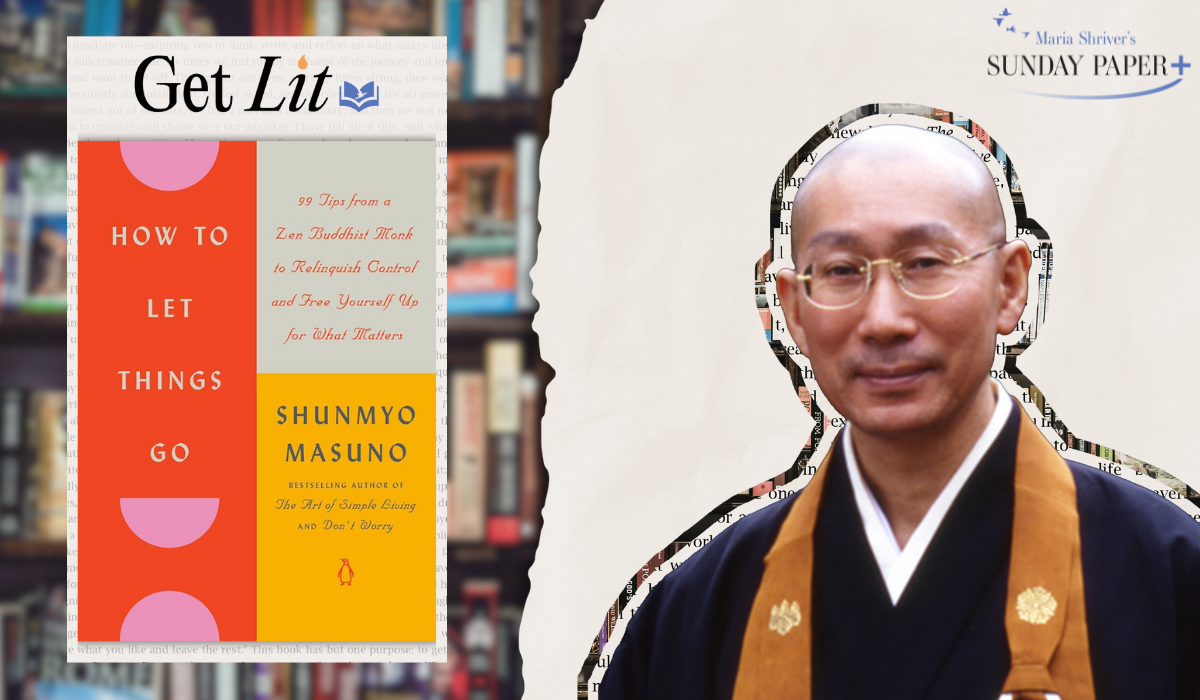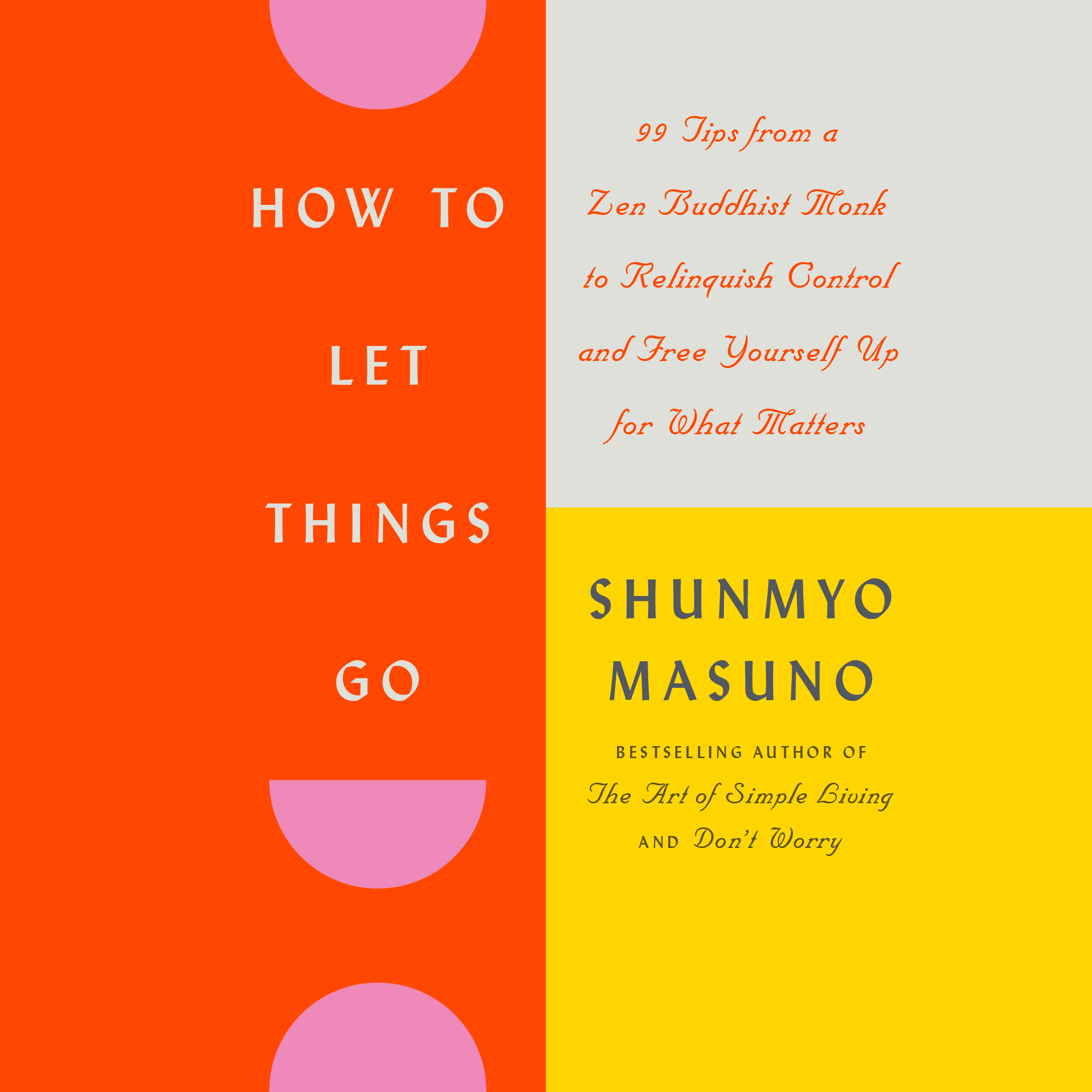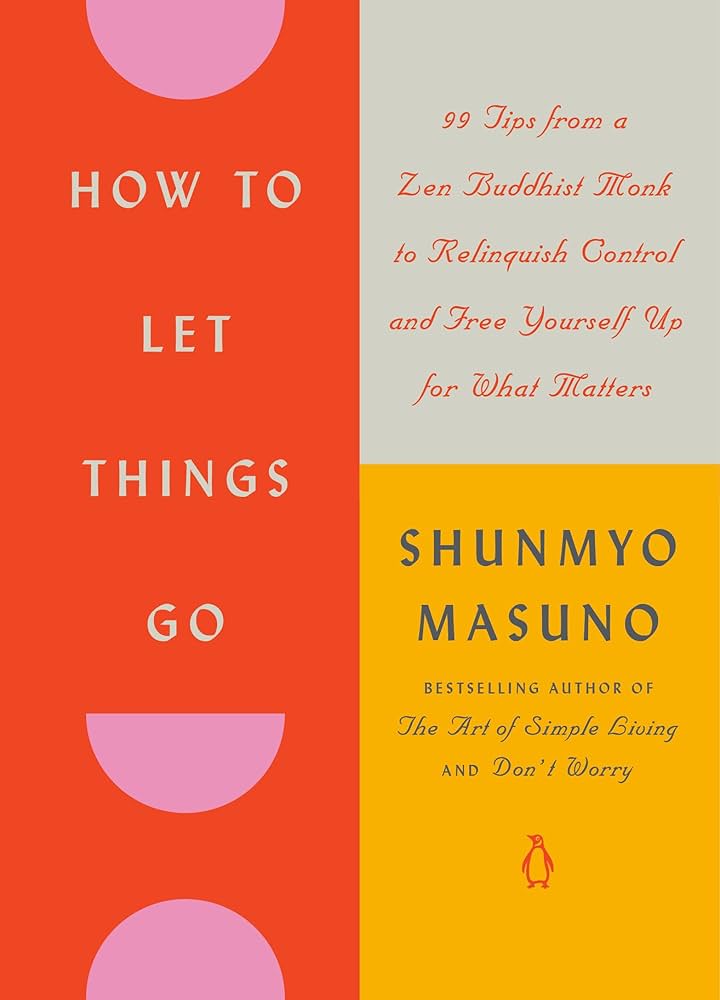Get Lit with Shunmyo Masuno: An Exclusive Excerpt from “How to Let Things Go”
Who
Shunmyo Masuno is the head priest of a 450-year-old Zen Buddhist temple in Japan and is the author of the international bestsellers Don't Worry and The Art of Simple Living. He is an award-winning Zen garden designer and a professor of environmental design at one of Japan's leading art schools. He has lectured widely, including at the Harvard Graduate School of Design, Cornell University, and Brown University.
What
In How to Let Things Go: 99 Tips from a Zen Buddhist Monk to Relinquish Control and Free Yourself Up for What Matters, Masuno gives you permission to abandon the futile pursuit of trying to control everything and discover the key to a fulfilling social life, individual well-being and a calmer mind.
Why
Shunmyo Masuno told The Sunday Paper he wrote this book because “in our modern age, we are constantly being bombarded with information. Things are more convenient than ever before. But don’t we always feel irritated, on edge, and stressed out? Now more than ever, it’s imperative to be able to differentiate between what we ought to hold on to and what we ought to let go of, in order to live our lives to the fullest.”
“I deeply hope that this book will help you learn how to let things go—and how to live your best life, in good health and comfort.”
& We
…chose How to Let Things Go as our Get Lit pick because we all need a gentle reminder to breathe and embrace simplicity in our busy lives. Masuno offers the Zen Buddhist wisdom we need to get us through. Enjoy!
Here’s Your Exclusive Excerpt
Tip 1
If you can’t be certain about it, stop worrying about it.
Deal with the problems that are in front of you.
At the root of anxiety is the desire to know something that you’re never going to know, no matter how much you think about it. A classic example is vague anxiety about the future.
The future may be predictable to a certain extent, but we can never really know what will come to pass. Things that are one hundred percent likely to happen do not occur, and things that are one hundred twenty percent unlikely do wind up happening. No matter how much data you collect, no matter how much time or effort you put into thinking about it, predicting the future is hit or miss.
Of course, if you have worries about something that’s likely to happen, best to do what you can about it right now. But there’s no point in worrying about what may or may not come to be. You’re better off devoting your energy to what is right here in front of you. If you focus on what you can take care of now, there’s always the chance that the future you were worried about will change.
It’s useless to fret about the future when you can’t know what will happen. All we can do is try our best to deal with problems when they actually occur.
Tip 2
“Slow down, slow down, slow down.”
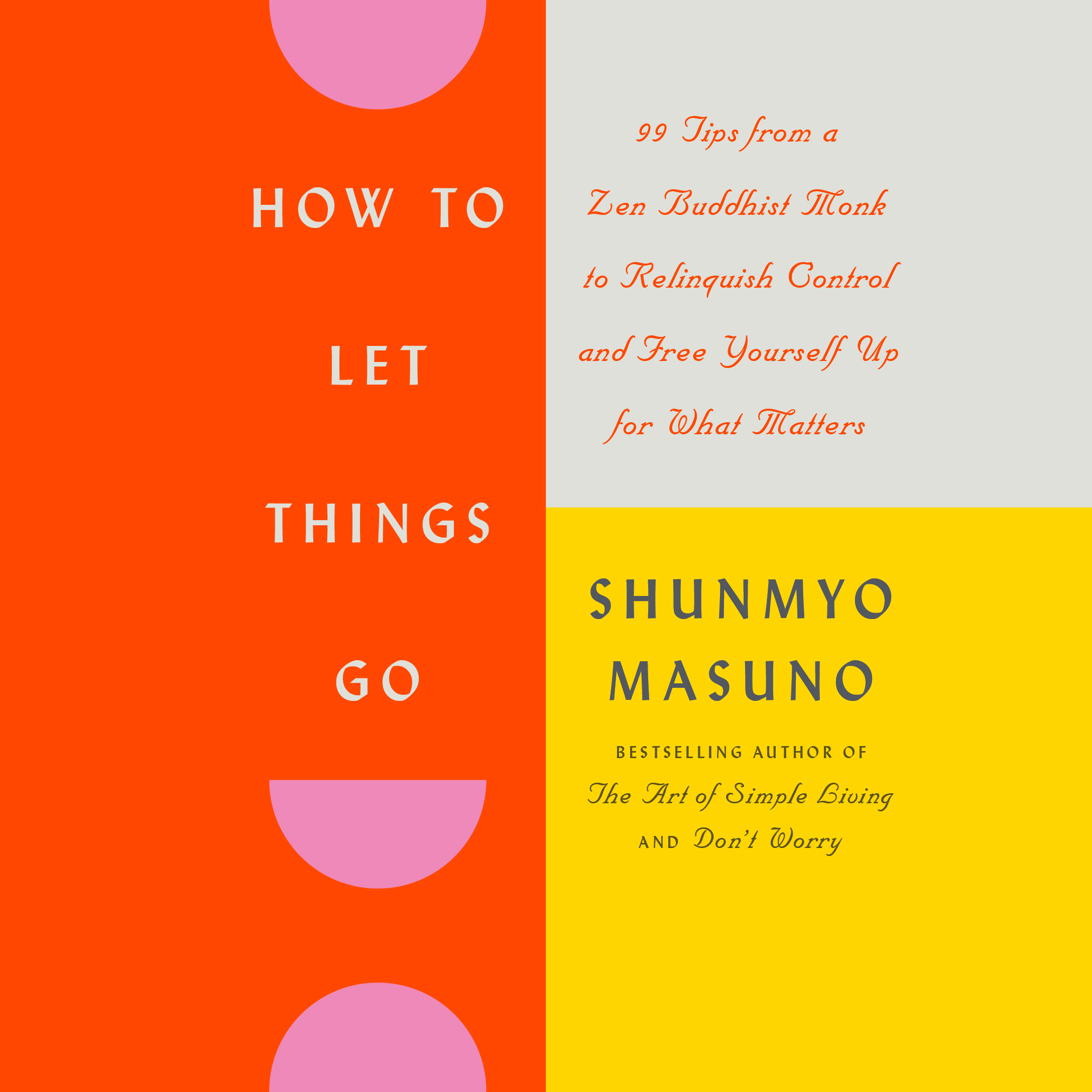
Even monks get angry sometimes.
Everyone loses their temper at some point. Maybe your pride is hurt when you feel you’ve been insulted, or you’re accused of something you were unaware of and it makes you want to shout, “Stop messing with me!”
But taking out your anger on someone else doesn’t solve anything. And it’s futile to step into the ring and fight with someone who has offended you.
Let me show you the best way I know to alleviate your anger in three seconds. Chant to yourself something along these lines, in a soothing tone:
“Gratitude, gratitude, gratitude.”
“Slow down, slow down, slow down.”
“Hold it, hold it, hold it.”
“It’s alright, it’s alright, it’s alright.”
Almost any variation on these phrases will work.
I learned this from the late Koshu Itabashi, who was the abbot of a Soto Zen temple. Even monks get angry, but we have to know how to pause and not give in to our temper.
Tip 3
“Right here, right now, this you.”
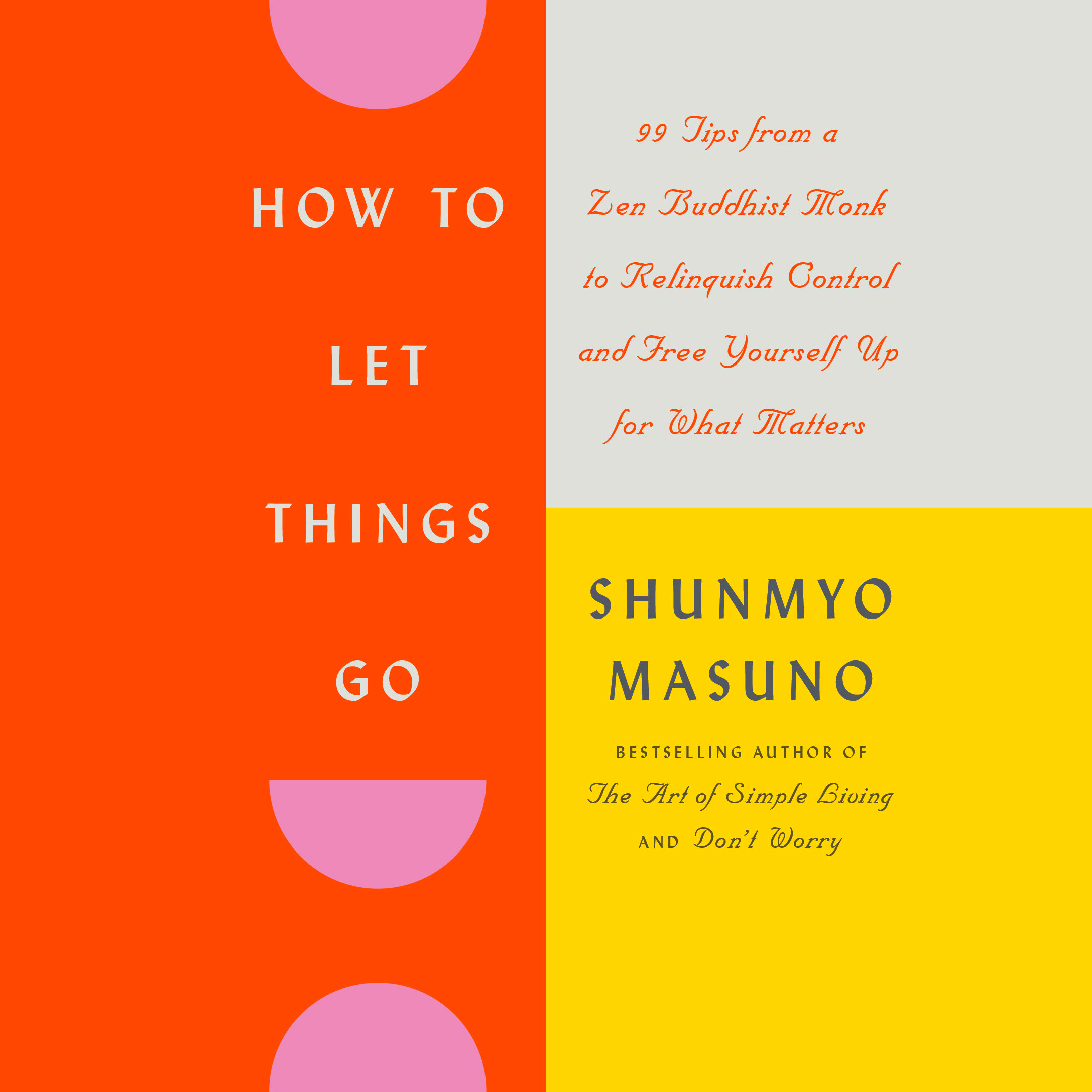
An in-depth understanding of this simple truth.
There is a zengo, or Zen saying, that encapsulates the need to live in the moment—to take action in the time and place where you find yourself.
“Right here, right now, this you.”
We are only capable of living now, in this moment. The self that existed a second ago is gone, and there is no guarantee that your current self will still exist a second from now.
Likewise, you can only be in the place where you are right now, and only this you can take the action that is at hand.
That is to say, the core truth of life is that all we have is the now.
We must understand this simple truth on a deep level.
When we do, we can greatly reduce the amount of time we spend regretting the past, worrying about the future, and brooding, doubting, or agonizing.
There is action you can take now. Put all your energy into it.
This is what it means to be alive.
Tip 4
Savor your alone time.
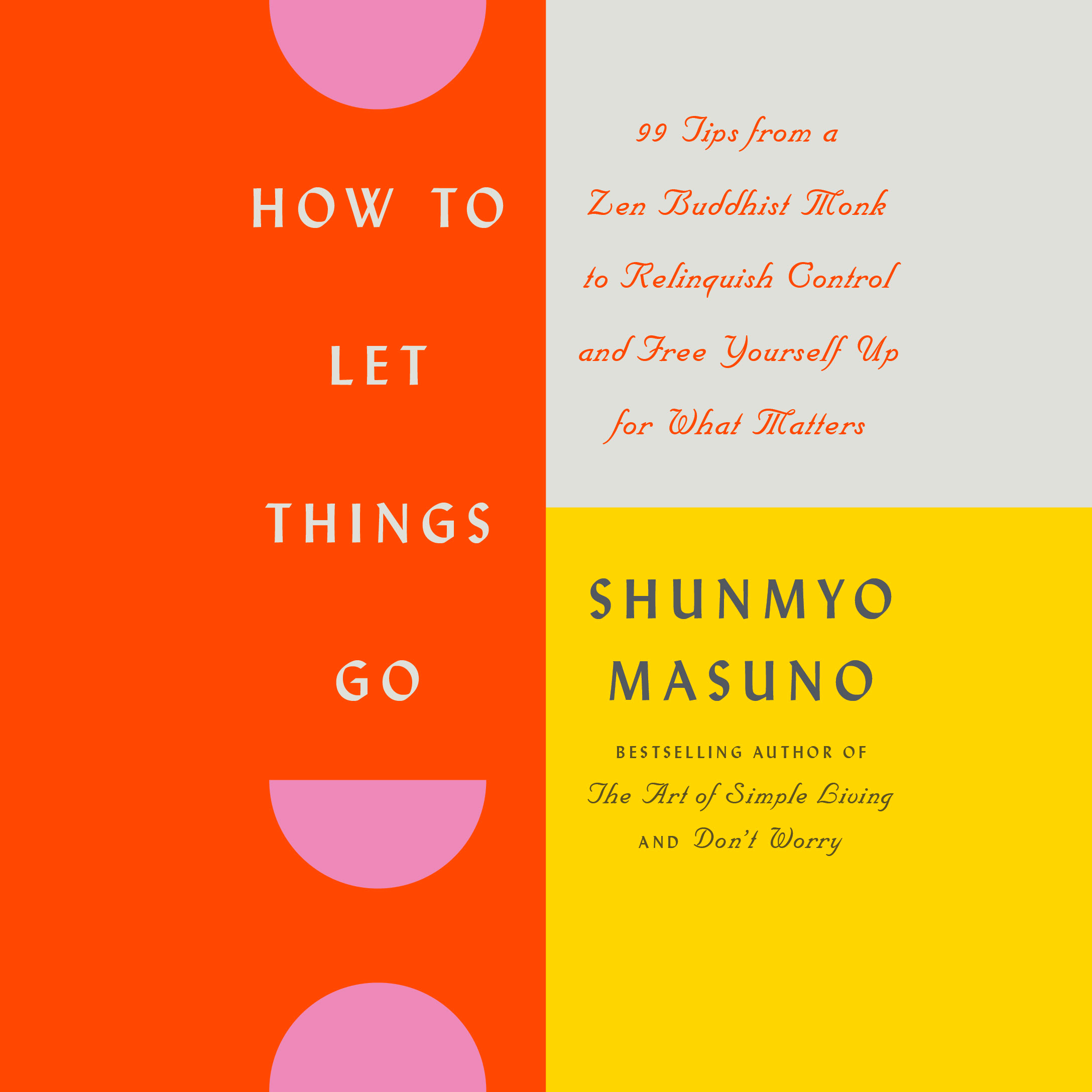
Follow in the footsteps of Saigyo.
I can’t help but think that ever since we’ve entered this age of the smartphone, we have become averse to loneliness. Perhaps we have grown accustomed to constant contact with others, chatting with them as if they were by our sides. But it seems as though we can no longer bear to spend time on our own, or to have free time with nothing to do.
This is a shame. Time spent in solitude is absolutely crucial. You need time alone with your thoughts to consider where you’ve been and where you’re going, to question your behavior, to examine events that have happened in the world and how they affect you… the list goes on and on. And so long as you are surrounded by others, you cannot get that alone time.
Since ancient times, Japanese people have regarded a quiet life alone, surrounded by the abundance of nature, as the height of luxury. The famous monk and tanka poet Saigyo (1118–1190), who lived from the late Heian period to the early Kamakura period, embodied this lifestyle.
We ought to strive for the awareness and introspection that alone time provides. It is a luxury that fosters a better way of life.
Tip 5
Don’t be manipulated by social media.
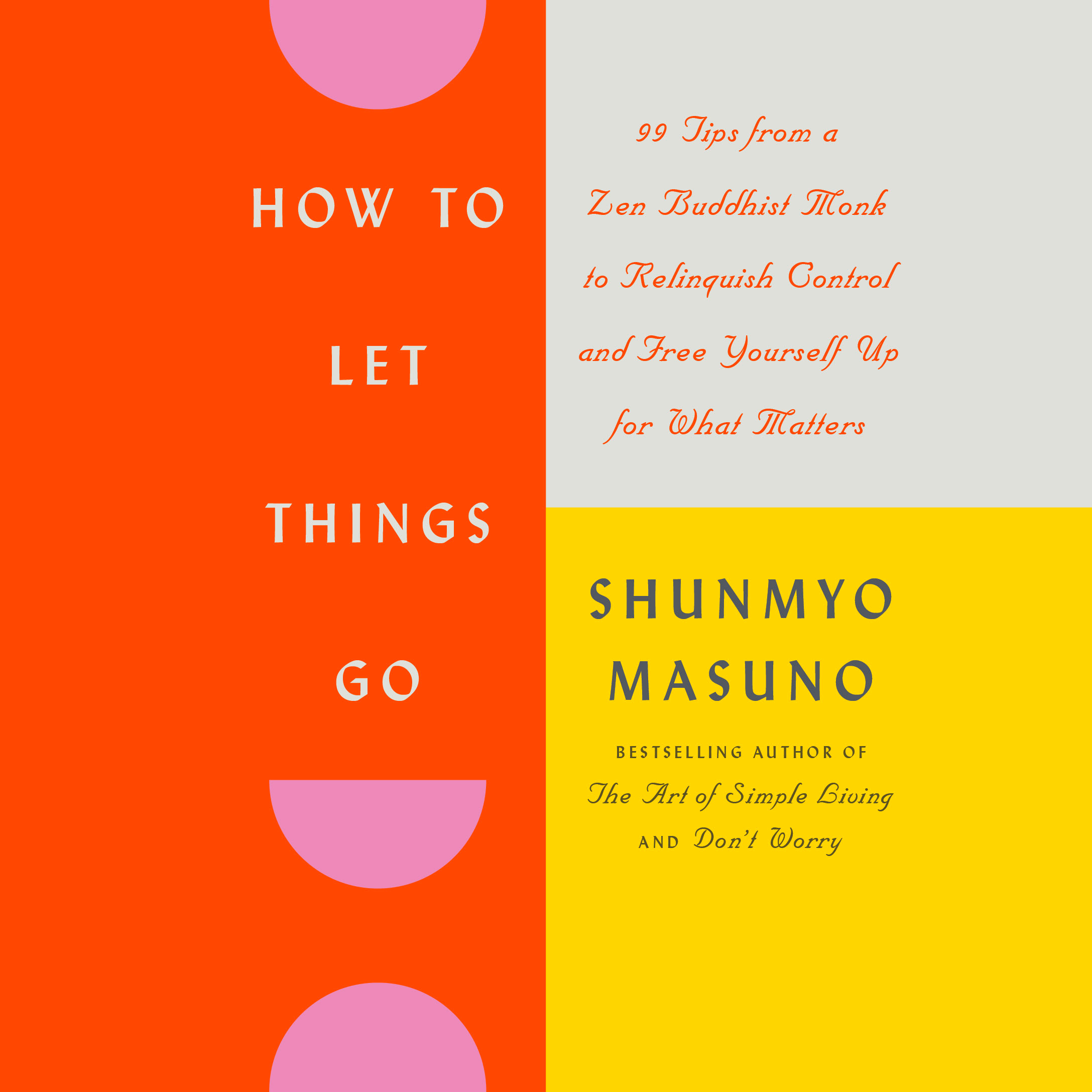
Do not forget that social media is merely a tool.
Even presidents and other heads of state are now on social media, using it to weigh in on everything from trivial disputes to matters of national importance. It’s hard not to see it as a terrific resource for the free exchange of information.
But if I may offer a piece of cautionary advice, it would be about the danger of being manipulated by social media. Without being able to see others’ faces, people become less considerate, making it easy for arguments to escalate in intensity. To avoid these futile battles, the key is to maintain a certain distance and not to engage rashly.
And of course there is the problem of maliciously fabricated news proliferating amid all the information out there, with the potential for defamation and the fomenting of unrest throughout the world. It is important for those of us on social media to be able to discern what is fake. Social media is, after all, merely a medium for communication. We must make use of it wisely.
From HOW TO LET THINGS GO by Shunmyo Masuno and translated by Allison Markin Powell, published by Penguin Life, and imprint of Penguin Publishing Group, a division of Penguin Random House, LLC. Copyright © 2021 by Shunmyo Masuno. Translation copyright © 2024 by Allison Markin Powell.
Audio excerpted courtesy Penguin Audio from HOW TO LET THINGS GO by Shunmyo Masuno, translated by Allison Markin Powell, read by Douglas Hachiya.
Discussion Questions: How are you going to incorporate Masuno's tips into your week?
Please note that we may receive affiliate commissions from the sales of linked products.

